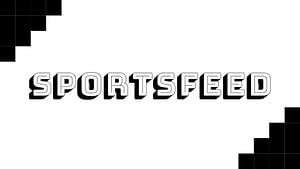Everything You Need to Know About the 4 Nations Face-Off
Hockey fans, get ready for something new and exciting! Instead of the traditional All-Star Game this season, the NHL and NHLPA are bringing us the 4 Nations Face-Off, a midseason international tournament that promises to deliver some of the best hockey action we’ve seen in years. Running from Feb. 12 through Feb. 20, this round-robin event will feature four powerhouse national teams: Canada, Finland, Sweden, and the United States. With NHL stars filling the rosters, this is shaping up to be a must-watch event. Let’s break it all down: the format, the schedule, the players, and what it all means for the future of international hockey.
What’s the Format and Rules of the Tournament?
The 4 Nations Face-Off will follow a straightforward format. Each team will play three games, and the top two teams will advance to a winner-take-all final. Here’s how the points system works:
- 3 points for a regulation win
- 2 points for an overtime or shootout win
- 1 point for an overtime or shootout loss
- 0 points for a regulation loss
Overtime rules will vary depending on the stage of the tournament. During the round-robin games, overtime will be a 10-minute, 3-on-3 sudden death period. If no winner emerges, a three-round shootout will decide the game. For the championship game, however, overtime will follow the traditional playoff format: 5-on-5 play in consecutive 20-minute periods until a winner is determined. — Clark
Where Are the Games Being Held?
The tournament will take place in two iconic North American hockey venues: Bell Centre in Montreal and TD Garden in Boston. Initially, the NHL considered a more global format, with games in Europe, but logistical challenges led to the current setup. Here’s the full schedule:
Bell Centre, Montreal
- Wednesday, Feb. 12: Canada vs. Sweden (8 p.m. ET)
- Thursday, Feb. 13: USA vs. Finland (8 p.m. ET)
- Saturday, Feb. 15: Finland vs. Sweden (1 p.m. ET)
- Saturday, Feb. 15: USA vs. Canada (8 p.m. ET)
TD Garden, Boston
- Monday, Feb. 17: Canada vs. Finland (1 p.m. ET)
- Monday, Feb. 17: Sweden vs. USA (8 p.m. ET)
- Thursday, Feb. 20: Championship Game (8 p.m. ET)
Fans could see the U.S. and Canada face off in both cities, including a potential showdown in the championship game. — Wyshynski
Why Only Four Nations? And Why These Four?
The short answer: practicality. The NHL is organizing this tournament independently, without the International Ice Hockey Federation (IIHF). To ensure competitive rosters, the league limited participation to countries with enough NHL talent to fill a team. That’s why nations like Germany and the Czech Republic aren’t included, despite having notable players like Leon Draisaitl and David Pastrnak. Russia is also excluded due to the ongoing invasion of Ukraine.
By choosing Canada, the USA, Sweden, and Finland, the NHL guarantees a star-studded event. If the tournament is successful, more nations could be added in the future. — Shilton
When Was the Last Best-on-Best International Tournament?
The last time we saw NHL players compete in a best-on-best international tournament was the 2016 World Cup of Hockey. That event featured eight teams, including Team Europe and Team North America, which showcased under-24 talent from Canada and the U.S. Canada ultimately won the tournament, defeating Team Europe in a best-of-three final. — Clark
What Are the Players Saying?
The response from players has been overwhelmingly positive. Canadian phenom Connor Bedard called it “great for the game of hockey,” while U.S. defenseman Brock Faber said, “It’s best-on-best, which hasn’t happened in a while, and that’s going to be so cool.”
For veterans like John Carlson, this could be one of their last chances to represent their country. “To represent your country is cool; it’s a different animal than what we’re used to,” Carlson said. “It’ll be awesome for the game of hockey.” — Shilton
What About the Players Who Feel Left Out?
Not everyone is thrilled. Czech star David Pastrnak, who led his country to an IIHF world championship earlier this year, expressed disappointment over Czechia’s exclusion. After winning the title, he posted a photo with the caption: “Maybe Four Nation invite now?”
While Pastrnak understands the logistical challenges, he called the omission a “huge disappointment.” Better luck in 2026, Pasta. — Wyshynski
What Does the Winning Country Get?
The winning team will take home a championship trophy, which is still in the design phase. Both finalists will also receive medals. As for financial incentives, players will share in the tournament’s profits, similar to the revenue split from the 2016 World Cup of Hockey. — Wyshynski
Who’s on the Rosters?
In June, each team announced an initial group of six players:
- Canada: Connor McDavid, Sidney Crosby, Nathan MacKinnon, Cale Makar, Brad Marchand, Brayden Point
- Finland: Aleksander Barkov, Mikko Rantanen, Sebastian Aho, Juuse Saros, Miro Heiskanen, Esa Lindell
- Sweden: Victor Hedman, Erik Karlsson, Filip Forsberg, Mika Zibanejad, William Nylander, Gustav Forsling
- USA: Auston Matthews, Jack Eichel, Matthew Tkachuk, Adam Fox, Quinn Hughes, Charlie McAvoy
The full rosters will be revealed on Dec. 4. — ESPN Staff
What Does This Mean for the Olympics and Future Tournaments?
NHL Commissioner Gary Bettman described the 4 Nations Face-Off as “a bit of an appetizer” for the Olympics and future World Cup events. After skipping the 2018 and 2022 Olympics, the NHL will return to the Winter Games in 2026 and 2030. The league also plans to host World Cups in 2028 and 2032, with the 2034 Winter Games set for Salt Lake City.
This tournament is a stepping stone, giving fans and players a taste of best-on-best competition ahead of these major events. — Shilton
Originally Written by: Ryan S. Clark, Kristen Shilton, Greg Wyshynski





















